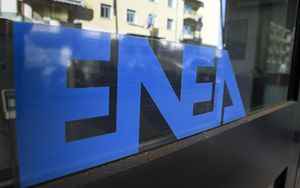(Finance) – Small-scale composting, technologies for the recovery and recycling of plastics, monitoring of microplastics in the sea: these are the main results achieved by the project NETWAP, financed by the call Interreg Italy-Croatia with a budget of approx 1.5 million euros, which saw the participation of ENEA, Unioncamere del Veneto, Fenice Onlus Foundation of Padua and GAL Molise around 2000. In Croatia, on the other hand, the Municipality of Zadar (project leader), the Ruder Boškovic Institute and Cistoca, the company in the province of Zadar responsible for waste management, were involved.
Electromechanical composters with a total capacity of 30 tons per year were installed in two sites: in the Municipality of Fossalto (Campobasso) in Molise and on the island of Ist, in Croatia. Thanks to this action, the separate collection of organic waste was introduced for the first time on the Croatian island and Molise recorded the first case of starting a local composting experience.
“With this project we have experimented with the application of the practice of composting on a small scale and proposed a management system for the plastic collected on the beach, for the benefit of locations often far from the collection and treatment services, which suffer considerable pressure in the summer season. tourism linked either to naturalistic beauties or to the presence of archaeological sites “, he explains Lorenzo Maria Cafiero, researcher at the ENEA Laboratory of Technologies for the reuse, recycling, recovery and valorisation of waste and materials. “We managed to overcome the existing practices in the management of the organic fraction, supporting local authorities and economic operators, through methodologies converted into local policy tools, targeted training and the supply of the technology itself. In this we have taken the first step towards adopting a cross-border approach to waste based on effective international cooperation and in harmony with the hierarchy of waste from the European Union and with the principles of the circular economy “adds Cafiero.
Apart from organic waste, the project also experimented in Croatia, in Vitrenjak (Uskok marina), “Seabin ”, a system that filters sea water to collect plastics, microplastics, oils and detergents before reaching the open sea. Once collected, the plastic has undergone a selection by homogeneous class of polymer, has been subjected to washing treatments and has been shown to be recyclable through extrusion tests.
